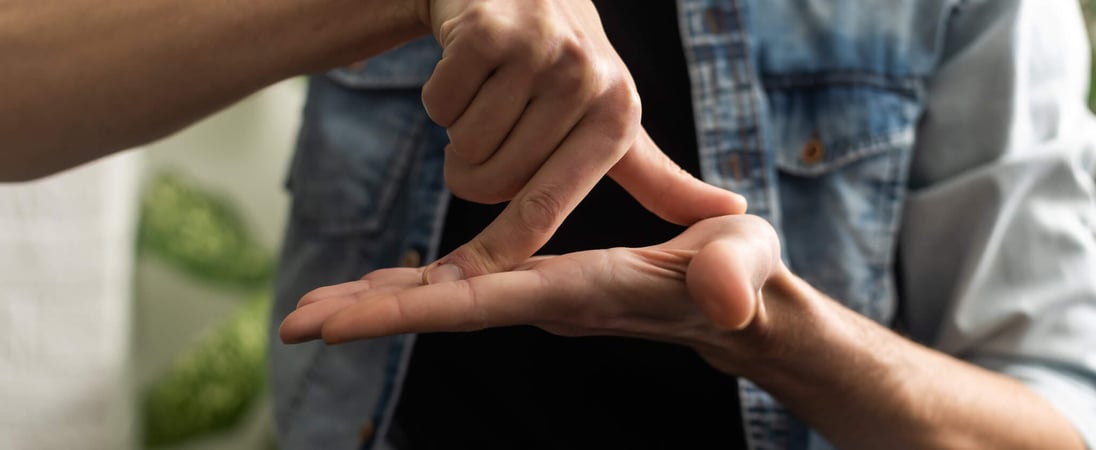
Deaf Awareness Week
Deaf Awareness Week is the one week when society can really make an effort to raise public awareness of the issues that can affect deaf people and their culture.
Society and its development are entwined with the growth of deaf communities and deaf education this week. It’s when we can all celebrate the milestones of the deaf toward their recognition and equality!
How to Celebrate Deaf Awareness Week
Here are some easy ways you may enjoy participating in Deaf Awareness Week:
Attend Deaf Awareness Week Events
Search online for local events and activities in your area during Deaf Awareness Week. Participate in interactive workshops and theater productions led by deaf artists who present their unique and powerful experiences in deaf life.
You may also find displays and events in your local library community center lobby or meeting room.
Get Started with Sign Language
Start with basic greetings, learn how to form basic sentences, and improve your skills and vocabulary. Try to learn even a whole song in sign language—you will enjoy trying a new kind of communication. Many online resources are available, and some local communities provide classes for the absolute beginner.
Support Deaf Non-profit Organizations
Take a look at different organizations supporting advocacy, education, or support services for the deaf and hard of hearing. Consider donating, volunteering, or attending some of their events and activities. You can be part of the difference they make in their work and the people they reach.
Host a Sign Language Only Party
Introduce simple sign language games, or have the party provide a sign language translator for the story-telling session.
It might be an interactive and exciting way to promote understanding and awareness. Your deaf friends will appreciate this show of support.
Celebrate Deaf Arts and Literature
The books, films, and artwork of Deaf artists and authors. This site has some pretty in-depth musings about the deaf experience and culture. Consider hosting a book club or movie night that focuses on one of these works. Consider reading Corinne Duyvis, Raymond Luczak, or Sara Nović.
Attend or Organize Deaf Culture Workshops
Attend a series of workshops that will present the different aspects of deaf culture, history, and sign language linguistics. Take part in a deaf and hearing experience.
Spend Money at Deaf Businesses
Your support during this week can benefit deaf-owned businesses, such as local cafes, service providers, or online shops, by raising awareness and providing economic support.
Study Deaf Rights Leaders
Learn about influential figures in the deaf rights movement. Knowing their contributions, struggles, and success stories can offer a deeper appreciation of deaf rights history and ongoing efforts. Consider focusing on leaders like Laurent Clerc, Alice Cogswell, and I. King Jordan.
Advocacy and Awareness Campaigns
Participate in campaigns advocating for the rights and needs of the deaf community, including writing to representatives or participating in social media campaigns.
Utilize Social Media to Discuss Deaf Awareness Week
Use platforms like X (formerly Twitter), Instagram, and Facebook to share facts, stories, and experiences related to deaf culture. Use relevant hashtags to highlight the week.
History of Deaf Awareness Week
The background of this week started in 1958 when the World Federation of the Deaf began celebrating the International Day of the Deaf. Later, the day was extended to a full week and Deaf Awareness Week was born.
But the history of Deaf Awareness Week is deeply rooted in the broader narrative of deaf culture and education. This evolution was, however, exemplified in the unique community of Martha’s Vineyard, where the highest incidences of hereditary deafness existed. This led to a society of bilingualism by both the deaf and the hearing, who used sign language fluently.
Efforts in the education of deaf children developed from very early ones, such as in the 1500s, by religious figures like Pedro Ponce de León, who had undertaken to teach deaf children of nobility, to the founding of specialized institutions in the field, for example, Gallaudet University.
Throughout history, including during some periods of the 20th century, schools have discouraged using sign language. However, these issues also led to the rising movements of the deaf to recognize the capacities and contributions of deaf people. Deaf Awareness Week is a critical part of of the journey of improving society’s treatment of people who have deafness.
Also on ...
View all holidaysNational Astronaut Day
Blast off into an out-of-this-world celebration! Learn about space, astronauts, and explore the cosmos. It's time to reach for the stars!
National Tourism Day
Discover the beauty of our world! Take a trip, explore new places, and make unforgettable memories. Pack your bags and let's hit the road.
No Socks Day
Go barefoot, dig out your sandals, or take the opportunity to stay home and let your feet relax, free of their usual prison of socks and constraining shoes.
We think you may also like...
Thyroid Awareness Month
Highlighting the importance of understanding and supporting those affected by a prevalent but often misunderstood health condition.








